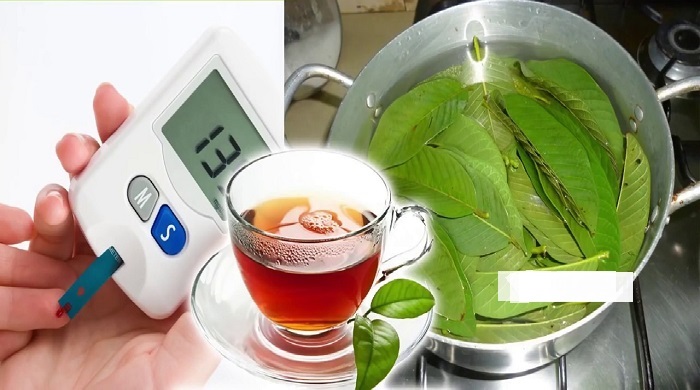- 1404/04/07 Association between serum hemoglobin level and bone mineral density in adults: Iranian multi-center osteoporosis study (IMOS)
- 1404/04/07 Predictors of biochemical and structural response to medical therapy in patients with active acromegaly following surgery: a real-world perspective
- 1404/04/07 Continued rise in the incidence of thyroid cancer in Iran: true increase or overdiagnosis
- 1403/10/20 program 5th Convergence Congress in Endocrinology
- 1403/10/12 The effect of Nurse-led Care implementation on Quality of Care & remove of diabetic foot ulcer and explain patients’ experiences A Mixed Method study
- 1403/10/05 Ovarian volume, not follicle count, is independently associated with androgens in patients with polycystic ovary syndrome
- 1403/10/05 Multicentral health and care assessment of diabetic foot in patients with diabetes
Short and informative with Dr. Larijani

Herbal Remedies for Diabetes
Numerous studies, both locally and internationally, have been conducted on the efficacy of herbal remedies in managing diabetes. Some herbal medications can indeed help control blood sugar levels, provided they have undergone rigorous testing to ensure safety and lack of adverse effects.However, it is crucial to emphasize that these remedies should not replace conventional treatments like insulin. Instead, they can be used as complementary therapies under the guidance of a healthcare provider
effects.However, it is crucial to emphasize that these remedies should not replace conventional treatments like insulin. Instead, they can be used as complementary therapies under the guidance of a healthcare provider
Diabetes and COVID-19
Individuals with diabetes are at a significantly higher risk of severe complications from COVID-19, with a mortality rate nearly double that of non-diabetic individuals. Our national data indicates that approximately 12% of hospitalized COVID-19 patients have diabetes, and the mortality rate among these patients is around 14% compared to 4.8% in the general population. A study involving 6,000 individuals revealed that those with HbA1c levels exceeding 10%
experienced a 60% higher risk of severe complications .
.
Poorly controlled diabetes exacerbates the severity of COVID-19, and conversely, COVID-19 can elevate blood sugar levels. Many individuals who did not have diabetes prior to COVID-19 developed the condition during theirhospitalization. Effective blood sugar management before, during, and after COVID-19 is crucial for optimal outcomes. Despite the availability of effective treatments, over 70% of diabetic patients in our country do not have their blood sugar levels adequately controlled
Probiotics
Probiotics are live microorganisms that offer numerous health benefits, including boosting the immune system, improving digestive health, regulating metabolism, and lowering cholesterol levels. However, the specific benefits depend on the bacterial strain. In addition to their role in preventing  infectious diseases, probiotics have shown promise in managing chronic conditions such as obesity, diabetes, osteoporosis, fatty liver disease, and inflammatory bowel disease. Probiotic products can be consumed as food or supplements, but proper storage and maintenance of the cold chain are essential to preserve their efficacy.
infectious diseases, probiotics have shown promise in managing chronic conditions such as obesity, diabetes, osteoporosis, fatty liver disease, and inflammatory bowel disease. Probiotic products can be consumed as food or supplements, but proper storage and maintenance of the cold chain are essential to preserve their efficacy.
Lifestyle Modifications and Osteosarcopenia
Lifestyle changes can significantly improve musculoskeletal health. Studies have shown that approximately 30% of elderly individuals in Bushehr, Iran, suffer from osteosarcopenia (a condition characterized by the loss of both muscle and bone mass). This increases the risk of fractures and related complications. Engaging in regular physical activity, particularly strength training and balance exercises, can help prevent osteosarcopenia
Preventing Falls
Falls are a major concern for older adults, especially those with osteoporosis. Approximately one in three women and one in five men over the age of 50 will experience a fracture due to osteoporosis in their lifetime. To prevent falls:
• Consult your doctor about fall prevention strategies. • Engage in a regular exercise program.
• Engage in a regular exercise program.
• Have your eyes examined annually.
• Maintain a healthy diet.
• Wear comfortable, supportive shoes.
• Make your home safer by removing hazards that could cause falls.
Factors Contributing to Diabetes Prevalence Obesity, air pollution, and physical inactivity are the primary factors driving the increasing prevalence of diabetes in many regions. Despite advancements in diabetes management, a significant proportion of individuals with diabetes experience complications such as kidney disease, neuropathy, and retinopathy due to inadequate control of their blood sugar levels.
Obesity, air pollution, and physical inactivity are the primary factors driving the increasing prevalence of diabetes in many regions. Despite advancements in diabetes management, a significant proportion of individuals with diabetes experience complications such as kidney disease, neuropathy, and retinopathy due to inadequate control of their blood sugar levels.
.

